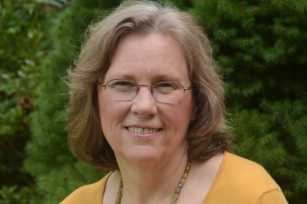
Breadcrumb
- Essential Partners
- Our Impact
- News and Notes
- The White House, Welcoming America, and EP: No One Is Dispensable
The White House, Welcoming America, and EP: No One Is Dispensable
Kudos to our friends at Welcoming America! Their innovative work earned the attention of White House officials in search of successful models for integrating immigrants into the civic life of communities.
Welcoming America is a national, grassroots-driven collaborative that promotes mutual respect and cooperation between foreign-born and U.S.-born Americans. It is a growing and vibrant organization with a small, inspired national staff and impassioned affiliates in 19 states. Essential Partners Associates have been pleased to work with them to build capacity in their affiliate network to design and facilitate dialogues, in particular, dialogues between recent immigrants and U.S.-born community members who may be anxious about the presence of their new neighbors.
Felicia Escobar, Senior Policy Advisor at the White House Domestic Policy Council sees immigrant integration as a key element in mobilizing all Americans—old and new—to contribute to economic growth. On December 21, 2011, she wrote on the Office of Public Engagement blog:
“Achieving full economic recovery and maintaining America’s competitive edge globally now and into the future will require communities to fully embrace their strongest resource—their people.” She went on to say that she and her colleagues were inspired by the work of Welcoming America and others in the emerging receiving communities movement who “help unite people from all backgrounds in American cities and towns."
She wrote, “We believe this approach holds great promise and look forward to continuing to support efforts that promote globally competitive communities across the nation that are welcoming places for all people to live and work.”
Traditionally, integration work with new immigrants has focused almost exclusively on the immigrants themselves. The transformative process of integration was expected to occur quietly and privately within the immigrants as if they were small tributaries of humanity aiming to seep unnoticed into the great river of American life. The role of the long-term members of the community was, in most cases, to simply go about their business navigating the familiar waters of their great, unchanging river.
The receiving communities movement, of which Welcoming America is a major part, recognizes that no matter how effectively immigrants are supported to become Americans, linguistically and otherwise, their entrance into community life does not go unnoticed. This is especially true in recent years, for two reasons. First, refugees and other immigrants are increasingly moving into small cities and towns where their presence is obvious to all. Second, the economic climate of the past few years has led to fierce competition for jobs and painful budgetary belt-tightening, leading even some well-intentioned and generous U.S.-born individuals to look askance at their new neighbors.
The receiving communities movement also recognizes that, while short-term economic concerns are understandable when a small community finds itself with new immigrants, that metaphoric great river of American life is great in part because of those tributaries of new Americans. Immigrants often take jobs that few U.S.-born Americans would be willing to take. And surveys of innovative companies and institutions of learning demonstrate that immigrants contribute in great numbers to the sort of enterprises that bring pride and strength to the U.S.
Welcoming America and others in the receiving communities movement also recognize that no matter where U.S.-born Americans stand on complex matters of policy related to immigration, people who are seen as “strangers in our neighborhoods,” no matter what race, ethnicity or religion, deserve as much care and respect as we accord others. These strangers need to be able to become neighbors.
Becoming neighbors is a transformation, and not one that can happen when one group stays behind closed doors or in isolated enclaves. Becoming neighbors is a transformation that happens among the neighbors, old and new. It is a transformation that contributes to strong communities. And it is the sort of transformation that dialogue can support so effectively.
In her blog post, Felicia Escobar described Welcoming America’s approach to strengthening communities through immigrant integration and she provided a link to their Receiving Communities Toolkit, written by Susan Downs-Karkos, an excellent overview of the various endeavors and practices that contribute to Welcoming America’s work on the ground.
In Susan’s section on dialogue, she indicates that the 28-page dialogue guide that Essential Partners (as Public Conversations Project) was commissioned to write, entitled Fostering Welcoming Communities through Dialogue: Tips from the Public Conversations Project for Welcoming America Practitioners, is “arguably the best place to start” for those interested in promoting constructive exchanges between U.S.-born and foreign-born Americans.
Here at Essential Partners, we are inspired by the work of Welcoming America (and are glad to see that the White House is as well). We are happy to have worked with them, not only through the creation of a guide but also through delivery of our signature training—The Power of Dialogue—as well as an additional half-day consultation designed specifically for eight of their practitioners, a panel presentation at the National Immigration Integration Conference in Seattle, and a workshop on dialogue at their annual meeting.
Like Felicia Escobar and our friends at Welcoming America, we are energized by a vision of communities, large and small, investing in the relationships among their members so that all can be heard, included, and motivated to contribute to a whole that transcends the parts. We are kindred spirits in our belief that no community member—new or old—is dispensable.
